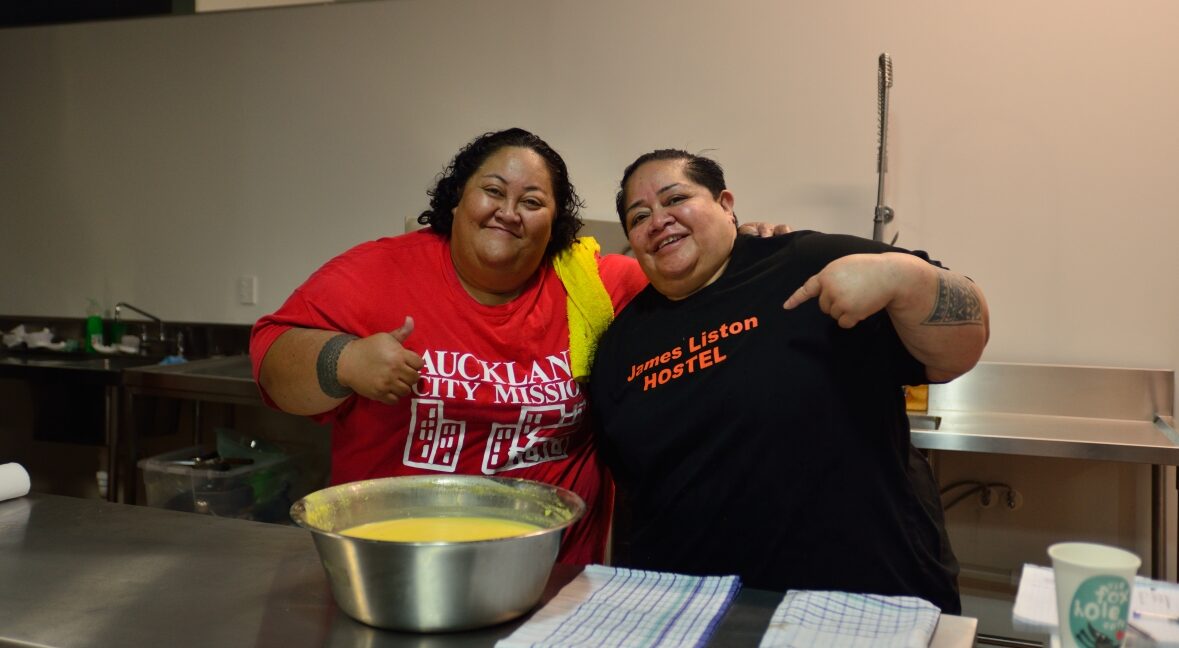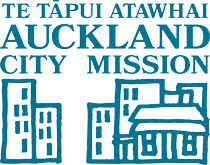Behind the scenes

Meet some of the Mission team
Any day at the Mission there is much to do and much to be done. Here are some of the team doing the mahi.
Meet Kevin - Street to Home Keyworker
For Housing Keyworker Kevin, personal experience of alcohol and drug addiction inspired him to support others facing the challenges of homelessness and addiction.
When someone experiencing homelessness comes to the Mission needing help, whether they are sleeping on the streets, couch surfing or in emergency housing, they are partnered with one of the keyworkers in our Street-to-Home team. Our keyworkers walk by their side as they navigate the journey through homelessness and into housing.
“It’s really important to get to know them and understand their housing needs to help them find a place that’s appropriate,” explains Kevin, “whether that is a studio, or something bigger for a family. Which areas they can live in, whether they have health issues or other physical conditions. To find them a place that they can call home.”
But it’s not just about finding housing, our keyworkers provide wrap-around support so that people can sustain their housing and live well independently.
“It could be as simple as helping someone to get a food parcel, or accompanying them to a meeting at a WINZ office to access available benefits. It might be connecting them with MSD employment brokers to help them find work. It could be supporting them at a court appearance. They might get support from our occupational therapist to enable them carry out everyday activities like self-care or looking after their homes.”
Our keyworkers can also help people connect with other organisations in the community or reconnect with their family, so they develop their own support networks.
“It’s not our job to do everything. It’s giving people control of the situation and empowering them so they can do it themselves.”
Within the Street-to-Home team, many of the keyworkers have specific areas of expertise or lived experience. Kevin’s personal experience of alcohol and drug addiction is helping him support others facing the challenges of homelessness and addiction which can go side by side.
Kevin was in his mid-thirties when his life fell apart. “I had a good job, I was living in a nice place, but I took a wrong turn in my life.
He lost more than eight years of his life to alcohol and drug addiction. “I look back now and know I’m lucky to be alive.”
“When I was young, I never thought that I would’ve ended up how I did. But addiction can affect anyone. It’s not selective of your social status, your occupation, whether you’re employed or unemployed, male, female, non-binary.”
“The only thing in my life, it was chasing the next high. For eight to ten years. Time doesn’t really matter. You’re not aware of what day it is, which year it is. I was always in debt. I had no sense of wellness. That all goes out the door. It was just chasing the next high.”
“I reached a point where I couldn’t stand to see my reflection. If I walked past a window pane or any glass, I had to look away. It took someone I loved to tell me straight what I had become. I needed to hear those words and I needed to see myself. That’s when I finally reached out for help.”
“The first detox programme didn’t work for me. I was in and out of four or five places. And every time I was out, I went back to using. Until I found a rehabilitation place which really worked for me.”
“While I was there, I started reading again. I found a book about other people’s journeys of being addicted to drugs or alcohol, and I couldn’t put it down. That’s when I knew I wanted to do this work. And that gave me a goal to work towards. I knew that I had to get completely well.”
Kevin has been a housing keyworker in our Street-to-Home team since April 2022.
“I work mainly with people who have alcohol or drug addictions because of my personal experiences. Because I can talk their language. I know exactly what it’s like. I can have those straight, honest conversations with them. I can talk to them from my own experience, and that gives them hope that they can move forward too.”
“I listen and try to understand the driver that will push them to get free from addiction. It could be getting visiting rights with their children, it could be getting a job or them realizing that they are not this person who they have become.”
“When they’re ready, I try to help them to find a detox or rehabilitation programme that will work for them, such as the Medical or Social Detox programmes here at HomeGround. And I continue to support them as they go through the programme.”
“I understand that some places won’t work for them. But I make sure they know the consequences of leaving a programme and that it can take a really long time to be accepted onto another programme. That’s reality. But we keep trying for as long as it takes.”
Our Street-to-Home team works with people until they are ready to move on without our ongoing support. “But we make sure they know they are still part of the Mission and can always come back if they need us.”
“This work is psychologically much harder than the work I did in my past life, but far more satisfying. It means so much more.”
“The most rewarding part of what I do here is hearing two words: Thank you. I rehoused a gentleman recently and he just put his hands around me and just said, thank you, thank you, thank you. And it’s not only the words, it was feeling his joy.”
“A few months ago, someone I had supported came out of rehab and came back to the Mission specifically to find me, to say thank you for putting him through all these programmes and for sticking with him. That’s what this job’s all about.”
“It’s not our job to do everything. It’s giving people control of the situation and empowering them so they can do it themselves.”
– Kevin

Meet Miki - Housing Support Key Worker within the Street to Home team
For Miki, working at HomeGround is better than living life as crew on superyachts, a life she once enjoyed.
“I just love it here. When I started, I couldn’t believe I got paid to do this!”
Miki started her career in social services after returning from two years’ work on superyachts. She had been cruising the Mediterranean, the Caribbean and the Pacific as a stewardess for the super-rich.
“It was amazing, but what was fascinating is that I went in expecting to see people who were very happy and having so much fun, yet what I found was a lot of sadness.
“My employers were constantly dealing with business, there was no let-up to the stress.
“I also felt sad seeing such extreme wealth when I knew there were so many people who had nothing. That’s when I realised it was time to go home and do something meaningful.”
Back in Tāmaki Makaurau, Miki joined Te Tāpui Atawhai mid-2022. “I support clients to sustain their tenancies and for each person that means something different. One may need a little help to clean their home or develop a routine while someone else might want support to gain employment.
“A big part of my role is to be an advocate because these are people who have not been heard before. We have a duty to ensure that they understand what’s happening so that they can make informed choices. Many cannot identify their needs because they have always been ignored. They’ve been denied the chance to learn who they want to be in this world. Having a place to call home here means they finally have a chance to figure out who they are.
“Our whānau have a hard time out in the world because there’s a lot of judgment out there, but in here, they are accepted for who they are, and they understand each other.
“I have seen people laughing harder here than anywhere else I’ve worked, and I would say that’s because happiness is about connection and community. HomeGround really is a home for our whānau – and I have found my place, too.”
“I have seen people laughing harder here than anywhere else I’ve worked, and I would say that’s because happiness is about connection and community. HomeGround really is a home for our whānau – and I have found my place, too.”
– Miki

